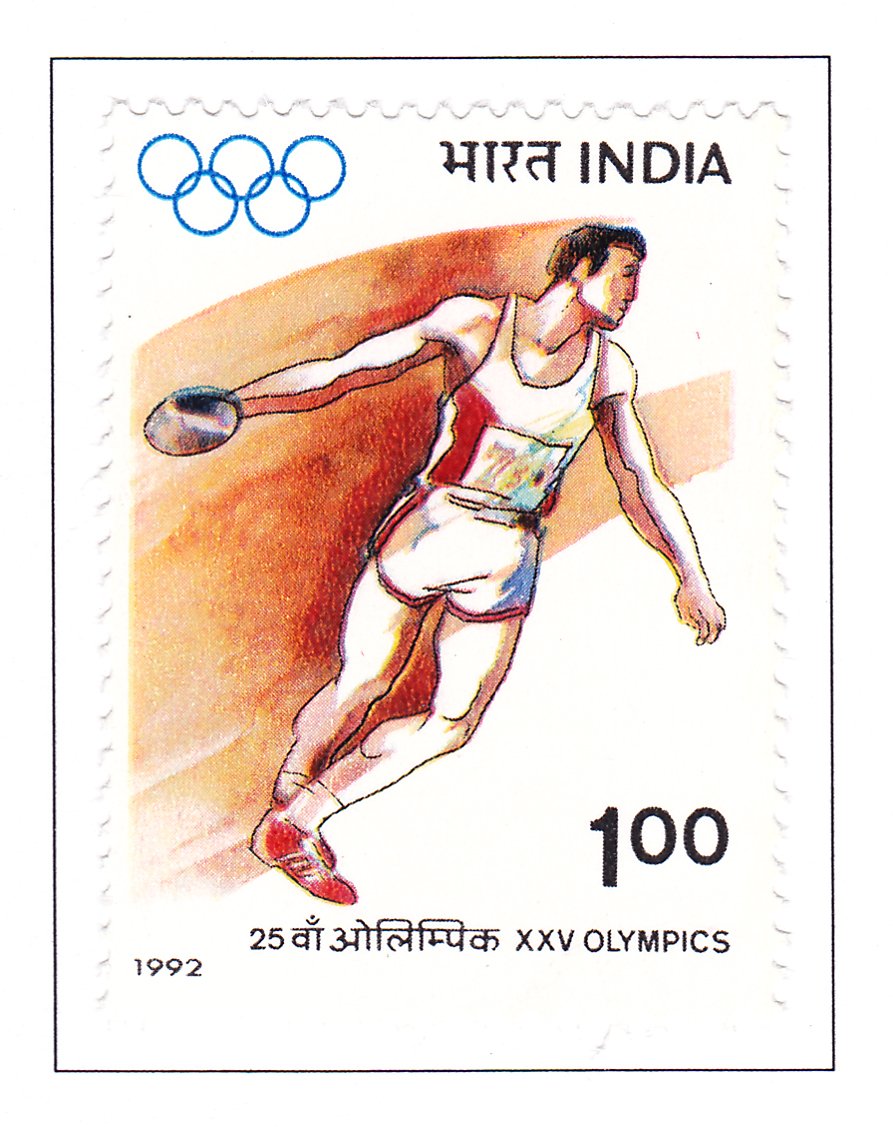25th Olympics: Men’s Discus

Technical Data
| Stamp Set | 25th Olympic Olympic Games |
|---|---|
| Date of Issue | August 8, 1992 |
| Denomination | Rs. 1 |
| Quantity | 1,000,000 |
| Perforation | comb 13 x 13½ |
| Printer | Security Printing Press, Nashik |
| Watermark | No Watermark |
| Colors | Multicolor |
| Catalog Codes |
Michel IN 1356 Stamp Number IN 1413 Yvert et Tellier IN 1154 Stanley Gibbons IN 1506 |
| Themes | Athletes | Athletics | Discus-throwing | Olympic Games | Sports |
Table of Contents
The Revival of the Olympic Games
The Olympic Games have a rich history rooted in ancient Greece, where they were established to honor the god Zeus. These games, held every four years, were much more than mere athletic competitions; they were a tribute to the divine and a demonstration of human prowess and dedication.
Ancient Olympics:
- Origins and Purpose: The ancient Olympic Games began in Olympia, Greece, around 776 BC. They were held to honor Zeus, the king of the Greek gods. The games included various events such as boxing, wrestling, racing, and chariot racing.
- Events and Awards: Events like boxing and wrestling were known for their intensity, while chariot racing was particularly prestigious. Winners were celebrated with substantial rewards, including 100 vases of olive oil and other honors like statues and food supplies.
- End of Ancient Games: The ancient Olympics continued for over a millennium until 393 AD when Emperor Theodosius I banned them, citing their pagan roots as incompatible with Christianity.
Modern Revival:
- Baron Pierre de Coubertin: The modern revival of the Olympics was driven by Frenchman Pierre de Coubertin. His vision of reinstating the Olympic Games in their pure, competitive form became a reality in the late 19th century.
- Founding of the Modern Olympics: Coubertin’s idea gained traction, and in 1894, the International Olympic Committee (IOC) was formed. Athens was chosen as the site for the first modern Olympics, which were inaugurated on April 5, 1896, by King George I of Greece.
- First Modern Games: The 1896 Athens Games featured 42 events across ten disciplines, with 285 athletes participating. This marked the beginning of a new era in the Olympic movement.
Symbolism and Traditions:
- Discus Throw: The discus throw is a historic event with roots in ancient Greece, frequently depicted in Greek art and sculptures.
- Olympic Torch: The torch relay is a modern tradition symbolizing the continuity of the Olympic spirit. The flame is lit at the Temple of Zeus in Olympia and carried by runners to the host city. Notably, at the 1992 Barcelona Olympics, the torch was ignited using a lighted arrow shot by a skilled archer.
The Olympic Games have evolved significantly since their inception, but they remain a powerful symbol of international unity and athletic excellence. The traditions and ceremonies continue to reflect the ancient spirit of competition and reverence for the divine.
